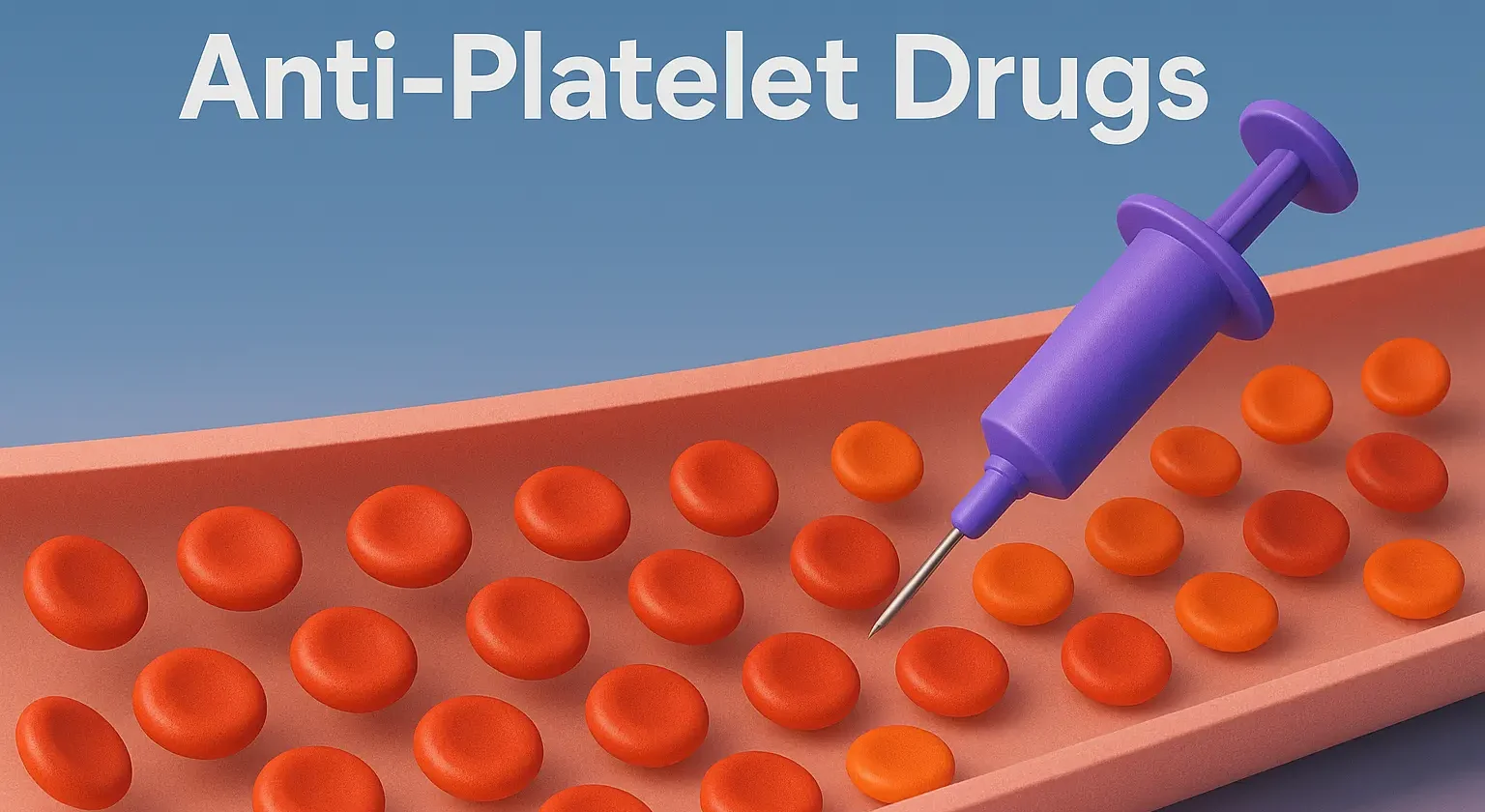Definition of Anti-Platelet Drugs
- Anti-Platelet Drugs agents inhibit platelet aggregation and activation, thereby preventing thrombus formation.
Classes of Anti-Platelet Agents

-
Aspirin (Acetylsalicylic Acid):
- Mechanism: Irreversibly inhibits cyclooxygenase-1 (COX-1), reducing thromboxane A2 synthesis, which decreases platelet aggregation.
- Use: Prevention of AMI, stroke, and in peripheral arterial disease.
- Side Effects: Gastrointestinal ulcers, bleeding, Reye’s syndrome in children.
-
P2Y12 Inhibitors (e.g., Clopidogrel, Prasugrel, Ticagrelor):
- Mechanism: Block the ADP receptor on platelets, inhibiting platelet activation and aggregation.
- Use: Acute coronary syndrome, post-percutaneous coronary intervention (PCI), stroke prevention.
- Side Effects: Bleeding, thrombotic thrombocytopenic purpura (rare with some agents).
-
Glycoprotein IIb/IIIa Inhibitors (e.g., Abciximab, Eptifibatide, Tirofiban):
- Mechanism: Block the final common pathway for platelet aggregation by inhibiting glycoprotein IIb/IIIa receptors.
- Use: During PCI, acute coronary syndromes.
- Side Effects: Bleeding, thrombocytopenia.
-
Phosphodiesterase Inhibitors (e.g., Dipyridamole):
- Mechanism: Increase cyclic AMP levels in platelets, inhibiting aggregation.
- Use: Often combined with aspirin for stroke prevention.
- Side Effects: Headache, dizziness, gastrointestinal upset.
-
Thienopyridines (e.g., Ticlopidine):
- Mechanism: Similar to clopidogrel; inhibit ADP-mediated platelet activation.
- Use: Similar to other P2Y12 inhibitors.
- Side Effects: Neutropenia, thrombotic thrombocytopenic purpura.
Clinical Indications:
- Primary and Secondary Prevention of Atherosclerotic Events: Including AMI, stroke, and peripheral arterial disease.
- Acute Coronary Syndromes (ACS): Used in combination with other therapies during and after interventions like PCI.
- Atrial Fibrillation: As an alternative to anticoagulation in certain cases.
Advertisements
Clinical Considerations:
- Combination Therapy: Often used alongside anticoagulants (e.g., dual antiplatelet therapy with aspirin and clopidogrel).
- Bleeding Risk: Increased risk of gastrointestinal bleeding, intracranial hemorrhage.
- Resistance and Non-responsiveness: Some patients exhibit resistance to aspirin or clopidogrel, necessitating alternative therapies.
- Side Effects: Gastrointestinal irritation (aspirin), bleeding complications, thrombocytopenia (GP IIb/IIIa inhibitors).

